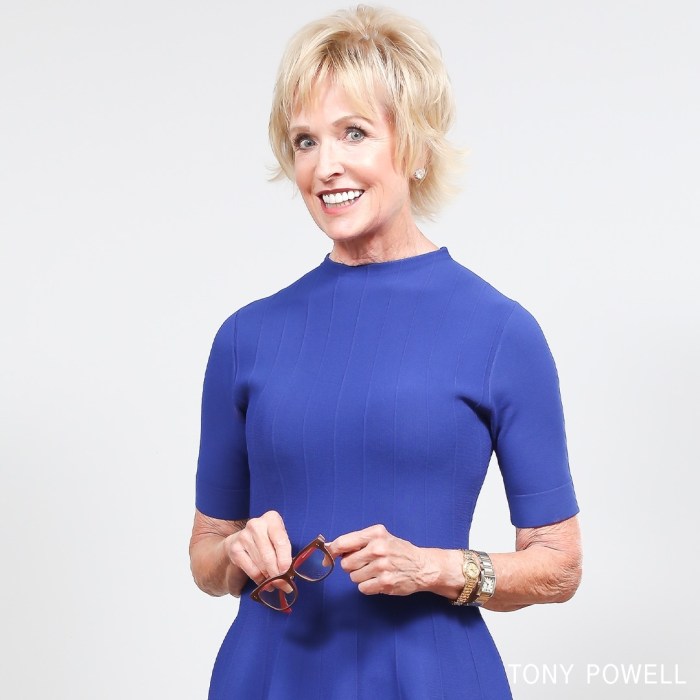In highly contested elections, candidates are rarely asked questions that pertain to their personal lives, as their political agendas command all attention. It is in this regard that Kathy Kemper stands apart. Kemper not only gets answers to the most pertinent of issues, but also explores the candidates’ tastes and preferences. This is Part 1 of a series.
Q: UVA is ranked as one of the best public universities in the United States, and the world. This is in part due to the high tuition paid by out-of-state students. Recently, however, Virginia has been trying to pass new legislation that would severely limit the amount of accepted out-of-state applicants. What would you do as governor to ensure that a sufficient amount of Virginians still attend the university, without compromising the necessary funding?
State Sen. Creigh Deeds (D): Because my own college education has been so instrumental to my life, I know we have to make college affordable. The cost of higher education has almost doubled in the last decade, with tuition at the University of Virginia up 4 percent just in the last year.
My education plan includes 70,000 additional degrees being awarded by Virginia colleges, and initiatives to make college more accessible, including increased financial aid. Through my Virginia Forward program, we will provide a 50 percent scholarship for every public college student with at least a high school “B” average who commits to two years of service in Virginia after graduation. We also will provide grants and loan forgiveness to students willing to work or teach in math or science disciplines or high-need areas, such as healthcare.
Robert F. McDonnell (R): Out-of-state students pay upwards of 140 percent of what it costs to educate them, and so they subsidize the education of in-state students, keeping tuition from going even higher during these tough times. That is good, but it is not a reliable way to finance a higher-education system over the long term, and it will not maximize opportunities for high-performing Virginia students. Instead, as we implement a sustainable funding plan, ease the tuition burden and develop more nontraditional, low-cost learning alternatives, we need to also be working with our four-year institutions to create more opportunities for our best Virginia students to attend our best Virginia schools.
While the impulse to help Virginians by limiting out-of-state student admissions is understandable, the long-term solution lies in increasing capacity at our higher-education institutions, not in rationing those opportunities. The long-term solution lies in a sensible and sustainable strategy of investment, with accountability, in the advanced education and training of our young people for the careers of the future.
Q: Healthcare is one of the hottest topics all across the country, and Virginia is no exception. As governor, how would you address the issue of the uninsured in Virginia? Would you side with Obama’s healthcare package? If not, what alternative will you offer?
Deeds: The next governor has two jobs when it comes to healthcare: make sure that the system is working for people who have healthcare, and get more of the 1 million Virginians who currently lack insurance into the system. When someone without health insurance gets sick, that person is likely to use the hospital as a primary care provider. And that’s a tremendously wasteful system that’s not good from anyone’s perspective.
There are a few things we can do to address the problem of the uninsured in Virginia. Right now fewer than half of small businesses in Virginia can afford to offer health insurance to their employees. I have laid out a proposal that would provide incentives to small businesses to help them offer health coverage to their employees. Another problem is the thousands of Virginians who have lost their health insurance after losing their job. That’s why I have a plan to offer emergency loans to laid-off workers to help them purchase health insurance. The worker will eventually have to repay the loan in full, but in the meantime that worker will have health insurance.
I’m not convinced there’s a single answer on healthcare. I support the bipartisan efforts to bring more competition in the healthcare market to drive down costs, and I think that signing up all Americans for health insurance is a good idea, provided that we do it in a way that works for small businesses.
McDonnell: We need to do more to expand health insurance coverage in this country, but the answer lies in market-based solutions — not mandating a nationalized system that restricts choices, limits options and diminishes quality. We must have a bipartisan solution that focuses on access to affordable care. Mandates for increased eligibility may increase Virginia’s Medicaid budget by hundreds of millions of dollars in the coming years. Governors across the country from both parties have expressed concerns about these mandates that could cripple state budgets that are already using furloughs, layoffs and cuts to critical services. Bob McDonnell will encourage bipartisan solutions that protect jobs, protect access to affordable healthcare and that don’t force costs back on consumers or the Virginia budget.
My plan includes the following highlights:
-Help Individuals and Employers Afford Low-Cost Health Insurance
-Encourage and Expand Health Savings Accounts
-Give Incentives to Families to Prepare for Long-Term Care Needs
-Expand the Supply of Nurses, Nurse Practitioners and Physicians
-Expand Assistance for and Through Safety Net Providers
-Controlling Cost and Improving Patient Safety and Health Promotion through Health Information Technology
-Maintain the Current Cap on Medical Malpractice Insurance
-Focus on Prevention
-Reform Medicaid by Auditing the Department of Medical Assistance Services
